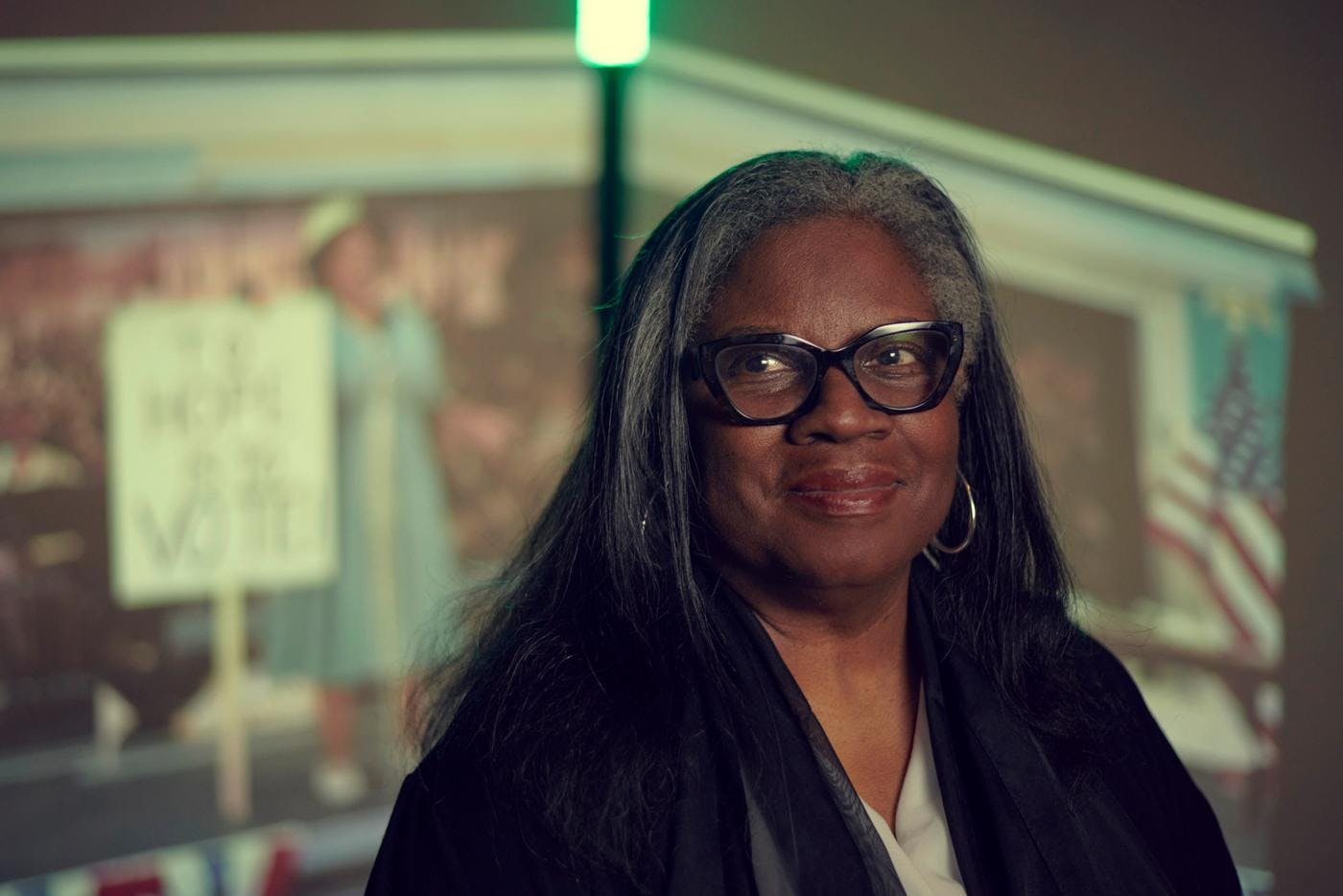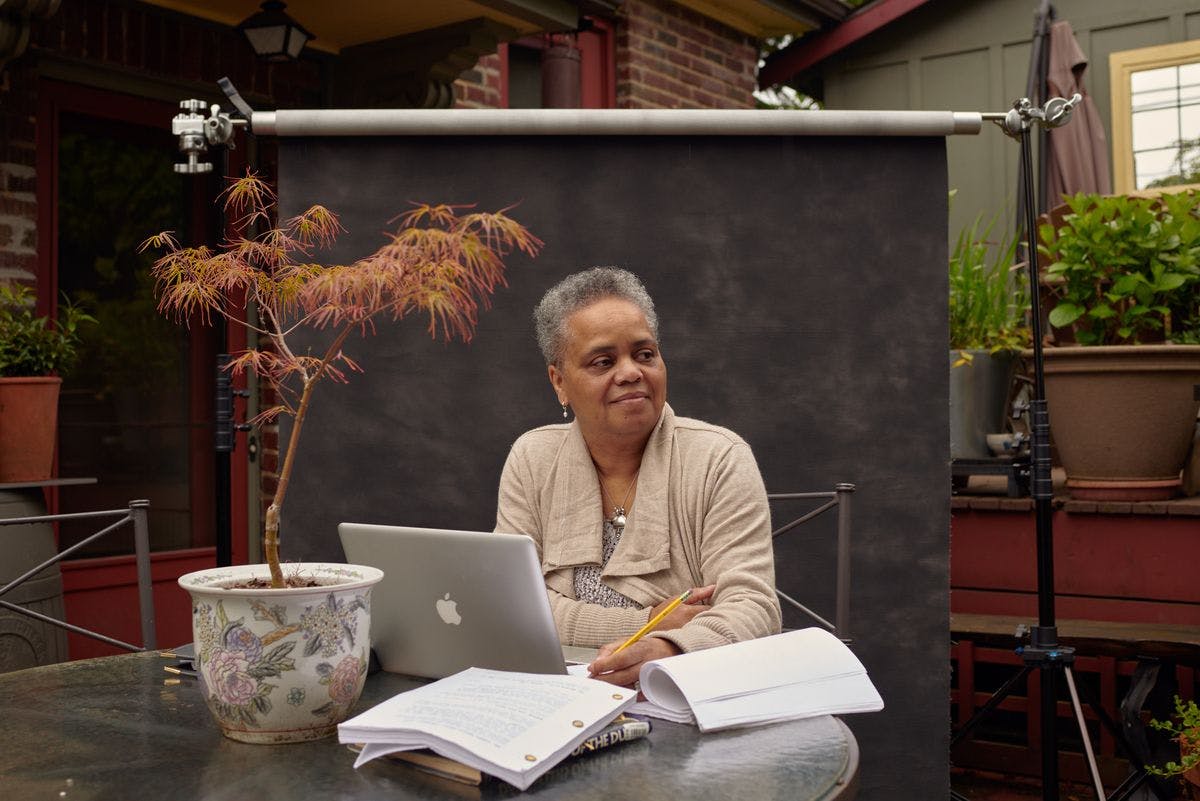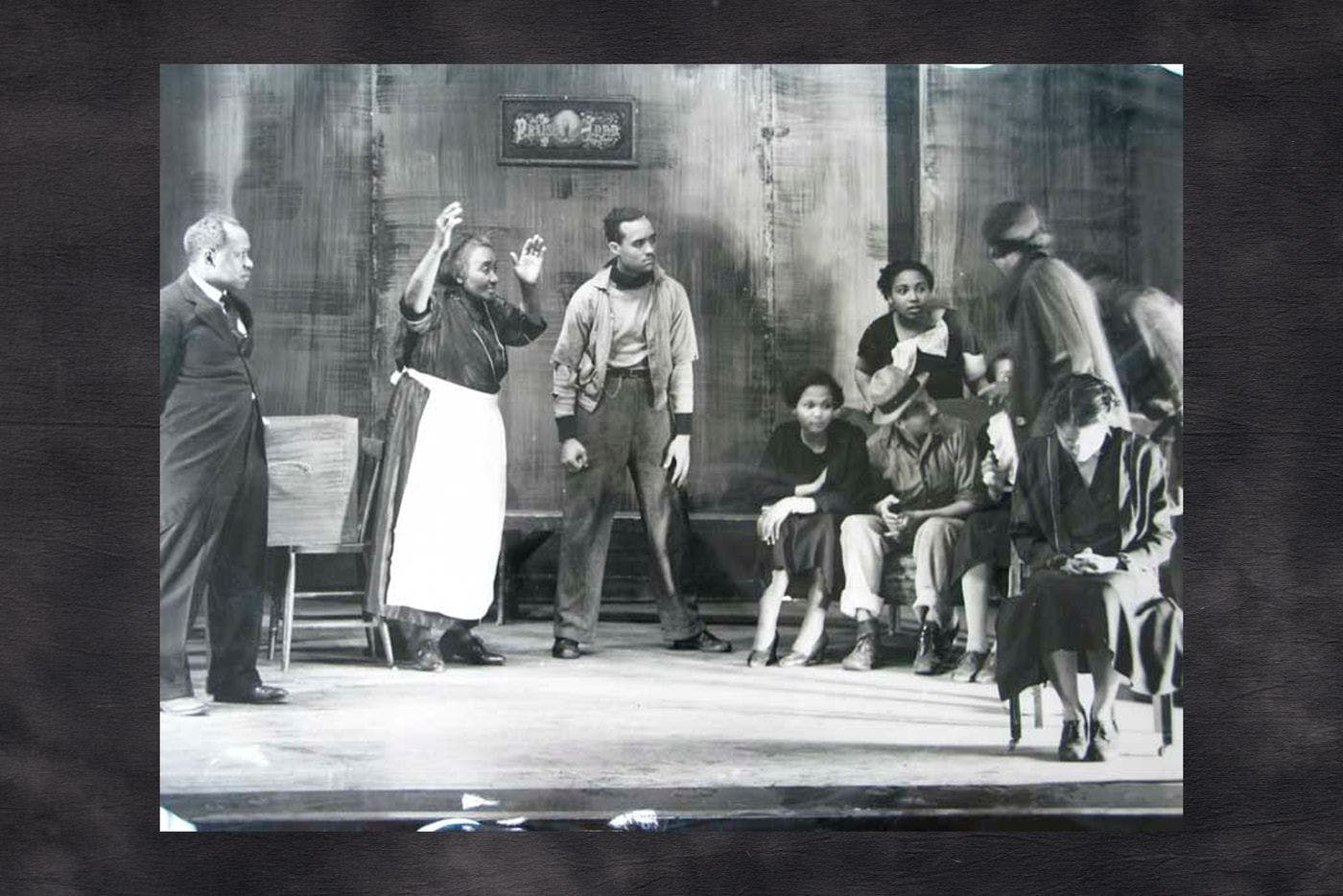
Cheryl L. West
Seattle Rep’s most-produced living playwright tells complex Black stories with integrity and poetry.
This actor/director found her place in Seattle theater by embracing risk and seizing her own narrative.
by Jas Keimig / June 28, 2024
“I’m a believer that at least some of the art that you make should scare you,” says actor and director Shermona Mitchell. “Whether it’s the subject matter, a particular scene or a piece of choreography, there should be something in there that keeps your heart aflutter in a way that you’re like, Dear Lord, don’t let me pass out.”
She laughs. “That’s how you know you’re risking something, that’s how you know you’re growing.”
On a recent spring day, Mitchell and a group of actors slowly filtered into a bright studio in the Seattle Center Armory, chatting as they took their seats around a giant table for their first read-through of 53% Of, a satire by Steph Del Rosso, which Mitchell directed in June 2024 for Sound Theatre Company.
The play skewers white women, taking its name from the percentage of them who voted for Donald Trump in 2016. Mitchell, who uses she/they pronouns, observed the six actors as they read their scripts — first embodying conservative women, then their husbands, then liberal white women. She giggled quietly at the ridiculousness of the material, taking notes.
Mitchell’s journey to this room involved two decades of risk and reward. One of Seattle’s premier actors, she has appeared in shows produced by ACT, The 5th Avenue Theatre, Washington Ensemble Theatre, Intiman Theatre and others. Along the way, she has portrayed a vast range of characters — from eldest daughter Lillian in the multigenerational family drama Stew to the pregnant Chorus in an adaptation of Euripedes’ tragedy The Trojan Women. She’s a scene-stealer, adept at embodying a range of emotions and the knotty inner workings of her characters with a unique blend of humor and drama.
Since 2015, though, Mitchell’s work with the social justice-minded Sound Theatre Company has been at the forefront: There, she’s assistant-directed plays like Reparations, a sci-fi story exploring the ways trauma is carried through generations. She starred in productions like Citizen: An American Lyric, an adaptation of Claudia Rankine’s powerful meditation on race in America. She is currently the company’s co-artistic director and she served as its board chair from 2021 to 2022, the first Black woman to do so.
Mitchell’s story begins far away from the Pacific Northwest in Fort Gordon, Georgia, where she was born in 1982. Both her parents served in the military, and as such she had an itinerant childhood moving around the Midwest, to South Korea and eventually landing in Kentucky. The idea of acting first popped into her head as a child, while she was watching a community production of A Christmas Carol at Fort Knox; she thought to herself, “I could do that better.”
It wasn’t until a teacher at her high school encouraged her to read a monologue that she actually put that idea in motion.
“[The teacher] was having auditions for drama club and she was like, ‘Hey, you come here,’” Mitchell recalls. “She asked me to read a monologue and said, ‘Read this and make me laugh.’ So I read it. And then she said, ‘Read this and make me cry.’ And I read it. Then she said, ‘OK, you come back to this class at this time tomorrow,’” Mitchell says. “So I did.”
From there, Mitchell’s love of theater blossomed. She came to Seattle to study at Cornish College of the Arts, graduating in 2005 with a BFA in theater. She then jumped headfirst into the Seattle scene, booking her first acting gigs within five minutes of each other.
One of those two roles, Esmeralda in a production of Tennessee Williams’s Camino Real put on by Theatre Simple, didn’t quite meet her own expectations.
“I got horribly reviewed. It was wonderful,” she says. “I didn’t die, I didn’t pass out, I didn’t beat on myself … It was one of those moments where when you come out on top, you imagine you’re going to stay on top and you’re not prepared for what descending might look like. When you’re already at the bottom, you can only shoot up.”
Mitchell has come a long way since then. She’s earned rave reviews for performances, including her portrayal of commodified Black artist Balkonaé in Theatre22’s 2019 production of White. (NW Theatre wrote that the role combined her strengths in “full-throttle, over-the-top humor, alongside irony, keen insight, and steely seriousness.”) She also won two Gregory Awards for her performances in The Last Days of Judas Iscariot in 2016 and Citizen: An American Lyric in 2019.

In the eyes of her peers, the praise and recognition is well-deserved. “[Mitchell] brings a vitality and a liveliness to any character that she portrays and is so fully in any character she portrays, you forget you're watching Shermona,” says actor Rebecca Davis, who met Mitchell in the early 2000s and has acted alongside her in various plays. “She knows how to tell us a story, whether it’s with a flick of a finger or with a full stage cross … She’s very adaptable and she’s also fascinating to watch — you can’t take your eyes off her. Anybody who’s on stage with Shermona better bring their A game.”
In 2012, Mitchell began her directing career in earnest, assisting on Pipeline at Seattle Public Theater and Beauty and the Beast and The Wiz at The 5th Ave. For her, directing is the culmination of her hard work and the care poured into her by her community. It’s also an investment in a future in which more directors look like her.
“I’ve had a lot of people who’ve invested in me and made sure that I’ve gotten the knowledge that they have. A number of people who really said, Hey, we see you doing this and we would like to uplift you. I was also very tired of being told what to do and how to be Black by white people,” reflects Mitchell. “I shouldn’t be tilling the soil. I should be planting seeds.”
Black Arts Legacies Writer

Seattle Rep’s most-produced living playwright tells complex Black stories with integrity and poetry.

The theater director and The Hansberry Project co-founder is fostering the next generation of actors, directors and playwrights.

Born from a 1960s urban relief program, the former synagogue has fostered generations of Black artists.

The Depression-era Black theater company celebrated Black storytelling with self-determined, interdisciplinary and collaborative works.

After landing on the stage unexpectedly, this Seattle actor/director’s 50-year career played a major role in the city’s Black theater scene.

The driving forces behind Black Arts/West and CD Forum share a mission to tell Black stories in the theater.

The accomplished Seattle theater actor and playwright brings Black voices and histories to the stage.

With art, puppetry and real talk, this television pioneer prioritizes children of color.
Thanks to our Sponsors
Your support helps Crosscut create projects like Black Arts Legacies. Learn how you can help with a one-time donation or recurring membership.
Support CrosscutLoading...